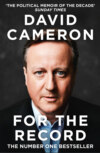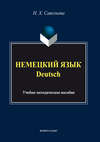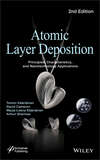Читать книгу: «For the Record», страница 10
The speech I made at the CSJ reasserted the Conservative mantra, which I fully subscribed to, that poverty or deprivation were never an excuse for crime. But, I added, there was a context, a background, that we needed to understand better. So, as I put it, when people crossed the line and committed a crime, the response needed to be rapid and tough. But to help more of them stay inside that line, we needed more understanding, more help – even more love. I homed in on ‘hoodies’, the name for both the hooded sweatshirts teens wore and the teens themselves: ‘When you see a child walking down the road, hoodie up, head down, moody, swaggering, dominating the pavement – think what has brought that child to that moment,’ I said.
We needed to deal with the background issues that led some towards a life of crime, like family breakdown, unemployment, drug addiction, children growing up in care, and educational underachievement. It was a classic compassionate Conservative speech and series of remedies. But the combination of hoodies and love outraged some in the press: ‘Hug a Hoodie’ was the News of the World’s take on the intervention.
I don’t regret the speech. It set the context for a new approach: committed to backing the police and supporting tough penalties in our courts, but tackling the failures of the care system, reforming adoption, targeting family breakdown and chaotic families, and beginning the long process of reforming our prisons. These were to be some of our most important achievements in government, and their genesis was in a speech that many at the time said would herald our defeat.
As part of the same train of thought, even before I became party leader I had been developing the idea of a school-age programme that would help our children – all children, not just a privileged few – gain the skills they would need for adulthood, such as resilience, confidence, teamwork, respect and responsibility.
I came up with the idea after talking to those who had taken part in National Service, the period of compulsory post-war service in the forces which ended in the 1960s. The main thing that came across from those conversations was that everyone had been in it together. It didn’t matter who you were, rich or poor, white or from an ethnic minority, academic or not – you forged a common identity. That’s why I wanted there to be a residential element in this new programme, to take teenagers out of their comfort zones and put them into groups with others of different backgrounds, and also a volunteering element, teaching them the value of putting something back into their community.
National Citizen Service was, I believed, the answer to many questions of our age. The education system was failing to equip children with the skills for adulthood; NCS could help fill in the gaps. Our society was broken; NCS could teach the respect that was so lacking. Integration hadn’t worked – we were still too segregated, too suspicious of each other; NCS would bring people together, and prove that ultimately we had so much in common. Although it was never made compulsory, NCS would end up as a rite of passage for every teenager who wanted to take part. Today, more than 500,000 have done so, and it is the largest and fastest-growing youth volunteering project of its kind in Europe.
As we developed individual policies, a theme was emerging. This was helped along by another moment that would have a profound impact on me, and as a result, on the future direction of the party.
Balsall Heath was a neighbourhood in Birmingham that had been blighted by crime, prostitution and antisocial behaviour. House prices fell. The middle classes moved out. But a group of people who remained had got together and taken matters into their own hands. They tore down the escorts’ fliers, harassed kerb crawlers and reported the drug dealers to the police. They started taking better care of the parks and public spaces, planting shrubs and trees.
I was so taken by this story that I went to stay with one of the residents, Abdullah Rehman, and his family. I ate with them, slept in their spare room, and walked their children to school with them. Interestingly for a British Muslim family, they had chosen the King David Jewish faith school, on the basis that it had a good ethos and understood the importance of faith. ‘We all believe in Abraham,’ Abdullah told me as we dropped the children off, before showing me around the community he had helped to transform.
Here, in this Midlands suburb, society was proving more effective than the state. Bit by bit, the idea of government nurturing a stronger, better, bigger society was forming in my mind.
So in those first few months there was a lot to sort out: the political strategy, the governing philosophy, the personnel, the purse strings and the policies. But those aren’t the only demands on a new opposition leader.
If you have any hope of being an effective prime minister, and of looking like a credible candidate for the job, you need a crash course in diplomacy, and foreign and security policy. My early overseas trips did a lot to shape my world view.
The first was to Paris to see Nicolas Sarkozy, before his run for the French presidency. He was the interior minister at the time, and famous for his fiery personality. My first taste of this was waiting outside his office door with Ed as he shouted at someone. ‘Imbécile! Imbécile!’ was all we could hear.
Sarkozy was captivating – small, wiry and full of energy. He was always accompanied by an equally energetic translator, who spoke at a hundred miles an hour. He told me how he admired the British economic reforms, and wanted to be the Thatcher of France. He clearly believed in the ‘great man’ theory of history – muscular leaders making bold decisions and changing the world – and wanted to be one of them. I later came to feel that Sarko, as he was known, was less radical in reality. But an incredible act of kindness towards me in later years would make me grateful to him for the rest of my life.
I first saw Angela Merkel at an election rally in Stuttgart, when she walked on to the stage to the Rolling Stones song ‘Angie’. In her speech she complained about the interference of the European Commission, which had told barmaids in Bavarian beer cellars what they could and couldn’t wear. I would use this for years afterwards to persuade her that there was a Eurosceptic lurking inside her too.
My decision to leave the EPP rankled with her, but it didn’t affect the close partnership we went on to form. While she profoundly disagreed with the move, she could see that I was a conservative who took a different view to her on the vital issue of European integration.
When we met I could see that she was, as Margaret Thatcher had been, the best-briefed person in the room, able to work out in advance other people’s negotiating needs and strategies. I immediately saw that she was someone I could work well with. She has a sense of humour, and is an anglophile. From behind the Berlin Wall she had admired British science and British democracy. She saw us as natural allies when it came to vital issues such as support for NATO, backing fiscal prudence and a belief in free trade. Above all, I liked her down-to-earth, straightforward manner. There was no flummery or flattery – she liked to get on and talk about the things that mattered. And, again like Thatcher, she used her charm to get her own way. But Merkel is not a Thatcher. Her favourite expression is ‘step by step’. This was to be disastrous for the Eurozone, which needed bold reform but got incrementalism.
It was in America that I met the forty-third president, George W. Bush. He was charming, intelligent and conviction-driven, quite unlike his caricature, and I admired what he was doing in the fight to combat AIDS and malaria. Yet I had tried to set myself apart from his neo-conservatism in a way that maintained Britain’s strong bonds with the United States. On the fifth anniversary of 9/11 I made a speech whose most reported line was that liberty couldn’t be dropped from the air by an unmanned drone. This was a criticism of unbridled neo-con interventionism, not a call for the unbridled American isolationism we are seeing a decade on. I didn’t believe you could have global US and UK leadership if you point-blank refused to intervene anywhere.
While these were all standard stop-offs, I also strayed dramatically from the path usually trodden by party leaders: India.
As I said in a blog I wrote at the time, we couldn’t afford to carry on obsessing about Europe and America while ignoring the fresh new forces that were shaping our world. It was an amazing visit. I travelled around Delhi in a tuk tuk, and walked through the Mumbai slums in the pouring rain to visit a community project, shocked at how starkly poverty and wealth sat side by side. While Tony Blair was fending off an attempted coup at home, I looked as if I was on a prime-ministerial visit. The contrast was helpful.
Sudan was a trickier visit, for here was the humanitarian crisis of our time. In Khartoum we met President Omar al-Bashir, a pariah who was later indicted by the ICC. When I mentioned an attack on a town in Darfur, in western Sudan, he claimed that it had actually taken place in the neighbouring country of Chad. Infuriated, I told him to look at a map. It was my first experience of how some of these leaders brazenly just lie.
The refugee camp itself was unforgettable. The sight of tents and huts stretching for miles, a city in the desert. The families who had lost everything, and had seen loved ones mown down by the Janjaweed militia as Sudanese soldiers looked on. The women, many of whom had been raped, telling me their harrowing stories. The only light relief came when we were sitting around talking through a translator, me bouncing one of the babies on my knee, and the baby decided to wee on me. Everyone laughed. Some things are universal.
In the middle of this hell was a literal oasis – a fifty-foot corrugated-iron tank, providing clean water for thousands of refugees. British aid sustaining and saving people’s lives.
Much of my approach towards development in later years could be traced back to that time, and to the pride I felt in the aid workers from the charity Oxfam – based just down the road from my constituency – who we stayed with during that visit.
While some of these visits broke with tradition, my next, the following year, broke with much of the international community.
In August 2008, Georgia, a sovereign country that had every right to regard its borders as inviolable, had been invaded by Russia on behalf of two Russian-backed but unrecognised statelets, South Ossetia and Abkhazia. It was a clear case of illegal aggression and occupation, and I believed the world’s oldest democracy had a duty to stand with one of the youngest and say so. I went to see President Mikheil Saakashvili, who I had met before and who I admired for his efforts to eradicate corruption, attract investment and get people to pay their taxes, a problem many leaders fail to crack.
He was under huge pressure, but was just about coping. There was tension in the air. Russian tanks were just twenty-five miles from the capital, Tbilisi. No one was quite certain if the ceasefire would hold, or the Russian tanks would start moving again.
‘History has shown that if you leave aggression to go unchecked, greater crises will only emerge in the future,’ I wrote in one article. ‘Today, Russia says it is defending its citizens in South Ossetia. Where tomorrow? In Ukraine? In central Asia? In Latvia?’
They say you shouldn’t make predictions in politics, but sometimes you do without realising it.
While modernisation was still being criticised by some in the press and the party, the public gave its verdict at the ballot box.
In the 2007 local elections we gained nearly a thousand new councillors and thirty-nine new councils. That represented 40 per cent of the vote, with Labour and the Lib Dems on 26 and 24 respectively. We were on track, edging closer to power. But there were rows ahead that threatened to throw us off course.
David Willetts, my shadow education secretary, whose vast intellect led to his nickname ‘Two Brains’, had given a speech on freeing schools from local authority control. In an aside, he talked about the evidence against grammar schools aiding social mobility, and said that a Conservative government wouldn’t open any more of them. Fine – that was our stated policy. I had said from the outset that there would be no going back to the 11-plus on a national basis. I was happy for the 164 existing grammar schools to continue, and to be allowed to expand, as we wanted other good schools to be able to do; but our focus was on improving standards for all 3,000 state schools.
Cue unprecedented uproar when the Today programme covered the speech. Shadow Europe minister Graham Brady was enraged. The Telegraph was incensed. The 1922 Committee was in revolt. Meanwhile, I was in Hull, spending three days at a school as a teaching assistant, and hearing all this down the phone from Ed.
On the subject of grammar schools, I reached for a new medium to set the record straight. I wasn’t just a blogger, I was a vlogger, recording a series of ‘WebCameron’ videos that were uploaded online.
I felt that the call to ‘bring back grammars’ was an anti-modernisation proxy, and I wasn’t going to stand for it. I looked down the lens and said: ‘It is a classic example of fighting a battle of the past rather than meeting the challenges of the future … The way to win the fight for aspiration is to put those things that worked in grammars – aggressive setting to stretch bright pupils, whole-class teaching, strong discipline, to name but three – in all schools.’ In fact my position was more nuanced than I made it sound. I still believed existing grammars should be able to expand, and in the same vein, that new ones could be built in areas where they were already established and population growth required it. I clarified this, but it looked like a climbdown.
And it came at a bad moment. We were just about to have a change of prime minister. Within a few days of the grammar school row it was Tony Blair’s final PMQs.
After he had spoken his final words from the despatch box, the Labour benches stood and applauded. I too stood up, and gestured to my own side to join in. They did.
Cherie Blair came and thanked me afterwards. She is another person who is quite unlike her public caricature. I’ll never forget, when I took Ivan to the premiere of the children’s film Ben 10, Cherie bending down to his wheelchair, looking him in the eye and speaking to him with great kindness and compassion.
I thought it was important to pay tribute to her husband in his last Commons appearance. For good and ill, he had changed British politics forever. And as I applauded, I felt a small inner thrill at the knowledge that a big obstacle on our path to victory had toppled. We were on our way.
But of course, it wasn’t to prove that simple.
10
Cliff Edge, Collapse and Scandal
It’s June 2007, Gordon Brown is prime minister, and it does not stop raining.
There was something apt about the ex-chancellor’s premiership beginning with the wettest weather in decades.
I had – and still have – huge respect for Brown’s intellect and his appetite for hard work. And mutual friends have told me how charming and entertaining he can be in private. But in public he seemed to have only one character setting: dour.
And when it came to Parliament, he had only one political setting: everything was about killing the Tories. While other Labour frontbenchers would build relationships with their opposite numbers, Brown would have absolutely nothing to do with his. The one time he did reach out to his shadow George Osborne, George and I were having dinner in Pizza Express in Notting Hill Gate. Brown wanted to ‘pair’ – i.e. agree that neither of them would vote in an important forthcoming debate. When George very politely explained that he couldn’t do this without consulting our chief whip, Brown simply shouted and swore at him, before slamming down the phone.
So when he succeeded Tony Blair, I was rejoicing. We were ahead in the polls. And I was up against someone who hadn’t been elected, who had some real flaws – and who I thought it was possible to beat.
But initially things didn’t work out that way. As ever, ‘events’ intervened.
On Brown’s second full day in the job, there was an attempted bomb attack in London’s Haymarket, and then, the day after, terrorists drove a jeep laden with gas cylinders into Glasgow Airport. Brown reacted swiftly and effectively – and struck exactly the right tone about the threat we faced and how we should meet it.
The non-stop rain led to non-stop floods, affecting first one part of the country and then another. Brown immediately toured the affected areas, pledging money to flooded-out communities and families.
Then, after plagues of fire and rain, came disease. Foot-and-mouth was discovered on several Surrey farms. Having spent little more than a day on holiday, the new prime minister darted back.
And as his side of the political seesaw rose, mine began to sink.
First, Quentin Davies, a pinstripe-suited Tory MP, defected to Labour with a resignation letter of pure vitriol. His criticism of the modernisation project was very personal.
Then came a by-election in Ealing Southall. Our candidate was a successful and engaging British Sikh called Tony Lit, and although we were never going to win in the London borough, we wanted to put up a good fight. But in doing so we ended up setting expectations in the wrong place. I had also agreed to the idea of the candidate running on the ballot paper under the description ‘David Cameron’s Conservatives’. This looked arrogant and hubristic. I campaigned hard, visiting the seat five times – and we came a dismal third.
I had a chance to seize back the initiative. Social action – our policy of backing volunteering at home and abroad – was a strand of modern, compassionate conservatism we were determined to demonstrate. Project Umubano, led by the MP Andrew Mitchell, was to bring together forty enthusiastic party volunteers in Rwanda that summer, and I was to join them for a night.
The problem was that parts of Witney were still flooded. But I had visited the flood victims, and I was absolutely determined that the Conservative Party would not be a follower on overseas aid, but a leader.
Nevertheless, the visit was dogged by questions about why I was in Africa when my own constituency was under water. That night I looked out from the Christian mission where we were staying, gazing over the lights of Kigali, reflecting on the critical coverage. I knew that it had been a mistake to come. But sometimes there are mistakes in politics you’re glad to have made, and this was one of them.
When Brown overtook us in the polls, rumours began swirling around about an impending vote of no confidence in my leadership. It really was personal.
Brown summed up the mood at PMQs with a rare quip (that’s how bad things were – Gordon Brown was making effective jokes): ‘The wheels are falling off the Tory bicycle, and it is just as well that he has got a car following him when he goes out on his rounds.’
William Hague was emphatic that if Brown was thinking straight, he would call an immediate general election, before the party conference season even began. That way, he would give us no chance to make up the ground we’d lost. I knew that we had just one chance: we had to deliver a Conservative Party conference in October that would metaphorically blow the doors off.
Though our policy-review teams hadn’t even reported back yet, we cobbled together a bumper series of announcements for each day of conference, from cutting stamp duty to introducing new cancer treatments. The Friday before conference, the whole lot – every single policy – was emailed to George’s chief of staff, Matt Hancock.
But Matt’s email address included his middle initial. We had inadvertently sent the full Tory plans to eccentric Lib Dem MP Mike Hancock.
The sender was mortified. The press officers were up in arms. I, however, was sanguine. ‘They’re great policies,’ I said. ‘If they leak, they leak. I’m off home.’ So many things in politics are seen as a calamity. Very few actually are.
However, we would spend the whole conference somewhat on tenterhooks, wondering on which day our precious policies were going to be published before we announced them. To this day I still don’t know why they weren’t.
Labour had a successful conference in Bournemouth, where Brown’s chief bruiser Ed Balls was briefing that there would be an election.
Then came our turn in Blackpool. A cliff-edge moment for our party – and for me.
William opened with a cracker of a speech, chastising Brown for hosting Margaret Thatcher in Downing Street the previous month (a move he must have hated but which made him look both magnanimous and bold).
George then unveiled what I termed his ‘hammock idea’, the conference announcement he’d always dream up while reclining somewhere hot over the summer. This year was the biggest yet: raising the inheritance tax threshold to £1 million. It was deeply Conservative, rewarding people who worked hard, saved and wanted to pass something on.
The finale of the conference, as always, was the leader’s speech. It would be back in the Empress Ballroom in Blackpool’s Winter Gardens where I’d delivered that leadership-winning, no-notes speech two years earlier. I had been pondering whether I could repeat the feat, not as a stunt, but because I was genuinely frustrated by my seeming inability to get across who I was, what I thought and what I wanted to do for Britain.
The lecterns I spoke behind felt like a barrier between me and the audience, distorting what I was saying and what people were hearing. Steve Hilton agreed. Sam told me to go for it. But last time was just ten minutes, I said. This is an hour. I have to cover everything. And it’s my political life on the line now.
But I knew what I wanted to say. It would be me up there, no artifice, no barrier. So in the run-up to the conference I was not just working on my speech with Ameet Gill, but secretly learning its structure, key points and key phrases as we went along.
Come the morning of the speech, I had rehearsed sections but never practised the whole thing in one go. Sam and I snuck out early for a walk on Blackpool beach. I bounded back, full of vim.
As I walked out onto the stage, I knew it was do or die. ‘It might be messy, but it will be me,’ I told the packed hall. As well as being ‘me’, it was terrifying, exhilarating – and knackering. After an hour, I reached the peroration. ‘So, Mr Brown, what’s it going to be? Why don’t you go ahead and call that election? … Let people decide who can make the changes that we really need in our country. Call that election. We will fight. Britain will win.’
I wish I could say I owed it to Cicero. In fact, it was inspired by the moment that David Niven loses his temper with Gregory Peck at the end of one of my favourite films, The Guns of Navarone. All that classical education gone to waste.
Before the conference began we had commissioned a ‘tracker’ or daily poll to see if anything we were doing was shifting the dial in terms of what the public thought. And we decided to continue the poll as the conference came to an end. It was money well spent. Our poll ratings ticked up daily through the conference – and then shot up at the end. I watched the news that evening and thought that I could see – for once – that I had really made that vital connection: from the hall, through the television, to the viewer at home.
But the country’s cameras were now trained once again on Gordon Brown: will he or won’t he?
The next day we were straight back into election planning meetings, as the tracker revealed we were neck and neck with Labour.
Then on Friday, as I drove to Dean, Andy phoned to tell me about a significant opinion poll which would be in that Sunday’s News of the World. It had been carried out only in marginal seats, and it showed, pretty comprehensively, that Labour would not win an election. Far from extending their majority, they would be losing seats to us. It was the final – and in my view, the key – factor that caused Gordon Brown to decide not to hold an election.
Brown argued that his decision had nothing to do with the polls. This enabled us to get the narrative going that as well as being indecisive and temperamental, he was taking people for fools. Andy came up with the refrain ‘Brown’s bottled it’, and we even had bottles of Brown ale made.
A word on being indecisive. The previous year, February 2006 had brought Elwen into our lives. Like Nancy, he was born under C-section at St Mary’s, Paddington.
Normally, parents can discuss baby names at their leisure. But we didn’t have that luxury. Gabby burst in soon after the birth telling us we had to come up with a name now, otherwise I’d look indecisive. I liked Arthur. Boring, said Sam. She sent me out to buy a book of names, and decided on Elwen – not the Welsh Elwyn, but the J.R.R. Tolkien version, meaning ‘friend of the elves’. So Elwen he became (but Arthur Elwen on his birth certificate).
Everyone who was there during the summer and autumn of 2007 remarked on how calm I was. Calm on the eve of the make-or-break conference. Calm when I was told about the accidental email leak. Ed found it infuriating that, just as I didn’t overreact to bad news, I was often disappointingly unimpressed when he brought me good news – treating triumph and disaster just the same.
People may interpret that as being indifferent, or ‘chillaxed’. It’s not. It’s because I know that bollocking people, blowing your top, throwing tantrums, doesn’t get you anywhere. It didn’t help Gordon Brown.
But Brown had helped us. By flirting with an election, then pulling out, then denying his reasons for doing so, he exposed his weaknesses. At the same time, he had brought out our strengths – our ability to refuel, to recalibrate, to come together as a team when we were under assault, to stick to the course even when events were trying to divert us. And the fact that our modernisation was working.
Brown continued to demonstrate his tin ear when he stuck with his plans to abolish the 10p rate of income tax for some of the lowest earners in Britain, in order to reduce the overall rate from 22p to 20p. Labour MPs were in full cry on behalf of all those who were going to lose out. There didn’t seem to be any way of compensating them without either reversing the policy in its entirety or spending a vast sum of money. It was to have a big impact on the electoral battles ahead.
Conventional wisdom holds – and my experience so far had proved – that there are two days that matter more to an opposition than all the others: local election day and party conference speech day. These are the moments – sometimes the only moments – when the searchlight beam catches you, and people focus briefly on politics and consider whether your party is up or down, and whether you look like a prime minister or a duffer.
I became increasingly obsessed with this theory, and knew that the London mayoral election in May 2008 was another such moment. We would only win in London if we could find a candidate who could reach out beyond our Conservative-voting base.
Boris Johnson likes to say he was my last choice, but it’s not true. George and I were keen to persuade him, and we worked hard to do so. One of the promises we made was that we would do everything to help him run the best-financed and organised campaign that money could buy. We made good on this promise by delivering to him the best campaigner on the planet: Lynton Crosby.
On election night, when it became clear the Conservatives were going to have their first London mayor, Boris arrived at the party at Millbank. As we walked in together, we joined hands and raised them in the air. A great pic. But Boris didn’t let go. So, rather strangely, we walked into Millbank Tower hand in hand. ‘I told you: hold, lift, drop,’ Andy chastised us. ‘Where was the drop?’ Of course, the drop came much later.
A fortnight afterwards we faced a by-election in Crewe and Nantwich, following the death of Labour stalwart Gwyneth Dunwoody. I threw myself into the campaign, visiting the constituency several times. Standing on a bench in the high street, giving an impromptu speech, I looked around at all the support – sometimes you don’t need tracker polls, you can just sense it – and I thought: we’re going to win this.
We did – the first by-election win from Labour since 1982. Ed Timpson became the first Tory in Crewe since the 1930s. The tide was turning.
But despite being on a roll, news of another by-election was much less welcome.
The shadow home secretary David Davis had decided, bizarrely, to force a contest in his Yorkshire constituency in protest at Labour’s increase of the maximum period of detention without trial from twenty-eight days to forty-two. This was a policy our party was vigorously opposing in Parliament, so the only conclusion I could reach was that the whole thing was a vain – and potentially damaging – ego trip.
William – yet more William wisdom – made me promise that I would not guarantee David his job back once the by-election was over. ‘It’s a team game, and he’s decided to leave the team,’ was his blunt assessment.
Начислим
+64
Покупайте книги и получайте бонусы в Литрес, Читай-городе и Буквоеде.
Участвовать в бонусной программе












